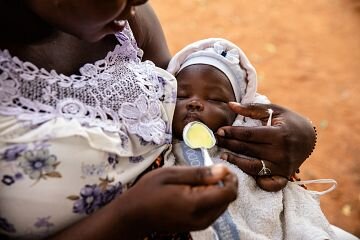Malaria Consortium expands seasonal malaria chemoprevention to South Sudan

Malaria Consortium is pleased to announce the expansion of its seasonal malaria chemoprevention (SMC) programme to include an implementation study that tests the intervention in South Sudan, marking the first time SMC will be used in the country.
The project will see around 20,000 children aged between three and 59 months receive monthly courses of SMC drugs through the rainy season, when malaria transmission is at its peak. The study will establish the feasibility and sustainability of the intervention when embedded within the existing health system in South Sudan, as well as its impact on malaria cases among eligible children.
Malaria Consortium has been a leading implementer of SMC since WHO issued its recommendation to scale up the intervention in 2012. Thanks to philanthropic funding received due to the SMC programme being awarded Top Charity status by GiveWell, Malaria Consortium is able to conduct this study in collaboration with South Sudan’s National Malaria Control Program (NMCP).
The study is a part of wider work Malaria Consortium is doing to define the future of SMC, particularly in new geographies outside of the Sahel region, where it has been used historically. It follows other implementation studies in Uganda and Mozambique, both of which have found SMC to be feasible, safe and effective in preventing malaria in children under five in their respective contexts.
Visit Malaria Consortium's website read the full story.